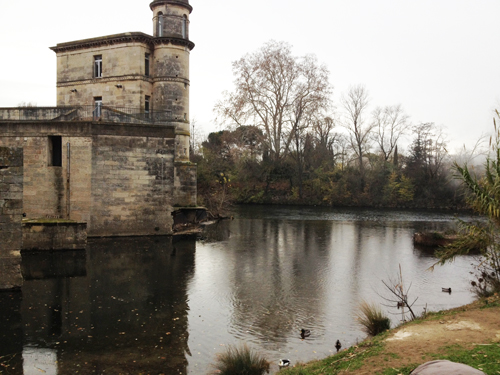From 18 to 19 February, near a hundred scientists will attend the first meeting of Gloabaqua in Barcelona. Coordinated by the CSIC, it will count on the participation of scientists from 12 countries and a budget of 7.5 M€. Five European rivers and one from Morroco will be studied.

What are the future scenarios of global change? How they will affect the avalaibility of water, their quality and quantity? These are the questions raised by Globaqua, a Europan project within the 7FP.
The project is led by the scientist Damià Barceló, at the Instituto de Diagnóstico Ambiental y Estudios del Agua (IDAEA-CSIC). Up to 23 centres and universities from 12 countries will participate in the project (including the non-European countries Canada and Morocco).
“The EU endorsement of Globaqua”, points out Damià Barceló, “is a consequence of the good work developed in a previous project, SCARCE, which was funded by the Consolider program of the Spanish Ministery of Economy and Competitiveness. In that project we analyzed the effects of drought on the aquatic environment, and how to manage the future episodes of water scarcity related to climatic change”.
“In this project we speak about global change because we want to analyze the circumstances caused by climatic change, but also the ones caused by socioeconomic factors and how they affect rivers and their environment”, explains Alícia Navarro, CSIC scientist at the IDAEA and project manager of Globaqua.
The project will analyze the different stress factors and what or who can be affected by, the consequences and how to manage these situations. In order to do the simulations, scientists will take as a reference the different climate scenarios by the Intergovernmental Panel on Climate Change (IPCC).
Water, soil and socio-economics
Globaqua will analyze the impact of global change on several basins: Ebro (Spain), Evrotas (Greece), Sava (a tributary of the Danube that flows through Slovenia, Croatia, Bosnia and Herzegovina-Serbia), Adige (in the northeast of Italy), Anglian (in the UK), and the Souss Massa (in Morroco). Every river has a different environmental and socioeconomic situation which supposes specific problems.

The project will focus not only on hydrological aspects (amount of water available, its quality and pollution) but also on the geomorphology of the land, an aspect which has not been always adequately studied. It includes aspects such as the buildings nearby the river, the sediments, the riverbed, the vegetation of the river banks, or the construction of infrastructures such as artificial reservoirs.
Other stress factors that will be analyzed are the presence of pathogens, the exploitation of groundwater and the changes in the use of soil. Scientists will study how these changes affect the biology and functions of the ecosystem, as well as the services from the river to society (water, fishery, energy, leisure spaces…). The implications of these changes (biodiversity loss, effects on the society welfare) and management strategies (water and land policies, and priorities) will be studied.
List of Globaqua partners on the CORDIS website: http://cordis.europa.eu/projects/rcn/111026_en.html
From 18 to 19 February 2014 will take the Globaqua “kick-off” in Barcelona.
